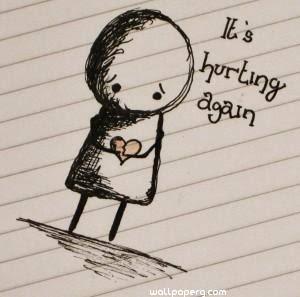With the challenges I faced, I knew I couldn’t be alone in my therapy frustrations. I conducted an informal survey through Facebook, polling 40 women who had experienced pregnancy loss after 20 weeks gestation. (In actuality, 45 women completed the survey but in order to view the last 5 surveys, I would have to “upgrade” my plan for $77, um, no thanks). There were ten questions in total. I’m not a social scientist and haven’t conducted many surveys or polls so this wasn’t by any means professional or scientific. And of course a 40-person sample size is much too small to make conclusions, so remember, this was, you know, a blog experiment.
The majority of those polled live in the United States, followed by the United Kingdom and Canada; Australia and New Zealand each had one response. The “Other” response was from the Netherlands.

Most of those who responded have counseling as a covered service under their health insurance plan.

Besides grief and trauma, some polled sought counseling from therapists specializing in perinatal loss and marriage (documented under “other”).

Of those polled, 71.8% have seen a counselor; the “other” category comprised four responses: 5 counselors, 6 counselors, “I saw a few one time but didn’t like any of them.” “first meeting this week”.

Sixty-four percent (25 people) of those polled are not currently in counseling. (The “other” responses were those who are anticipating starting counseling in the very near future).

Of those twenty-five, thirteen people (52%) gave responses related to the difficulty of therapy. Some comments include:
I felt they [the therapist] wouldn’t be able to understand what I was going though and I’m not very good at sharing my thoughts. I also thought they may think I was unsuitable to have another baby.
I found that I was unable to be truthful with my counselor. The one time I saw her, I pretended to be okay and gave all the right answers. I wish I didn’t. I wish that she had pushed me harder rather than just seeming to accept everything I said… I mean, I showed up to talk about my baby’s stillbirth, she should have guessed there was ‘more’ to what I was saying.
I am not yet ready to do some things that I know they [the counselor] will want me to work through. As soon as I feel [that] I am in a spot where I am ready to work through the grief than, I will go.
There were five responses (20%) that pertained to a lack of connection with the therapist. One comment, which unfortunately didn’t surprise me was “I couldn’t find one that wasn’t rude or judgmental.” Another mom reports “the counselors that my insurance covered were not specialized for my issues, and mostly were just inept for my emotional/psych needs.” (Again, not surprising).
Three moms were still looking for a counselor, one mom saying, “I don’t know where to start. I don’t know how to find someone. Everyone seems to think I should be moving on already.”
Six moms responded that they are no longer in counseling because they felt their goals were completed. Two of those six were pursuing support elsewhere. Six of the forty polled mentioned other support (either instead of or in addition to) such as in-person support groups, online social media support, family and friends.
I felt like my counselor gave me good advice and tools to work from. As far as actually processing my grief, it was more beneficial for me to speak with trusted mentors and family.
I felt I got what I needed from my counseling experience and I am at a point in my grief that I am able to cope without counseling.
I saw a private counselor within a week of losing my daughter at 38 weeks, but had to relocate 3 months later to an area where that wasn’t available. Private counseling is cost prohibitive long-term so I will be starting with the public women’s mental health team now that I’m back in an area that has that service available.
Two responses related to cost, the one above and this one:
[I] was told by [the] mental health team to wait 4-6 months or pay for private counseling.
Other comments
I have been going to pregnancy and infant loss support groups for the time being and that has been helpful. But not one-on-one counseling yet.
I wish there were more low cost, easily accessible options for quality counseling specific to the grief process as it applies to my stillbirth loss.
I do wish I had sought counseling sooner (I went about 9 months after my loss). I may still seek counseling as I’m still not feeling okay 1 year out.
I struggled with knowing she didn’t truly know how I felt.
The counselors made it so much worse, really so mean.
I’m not sure I would have been able to grieve appropriately if I didn’t have that support. It gave me perspective, direction, and helped me keep moving forward. It helped reduce the guilt and isolation I was feeling.
My counselor helped make my thoughts/feelings validated when at times I thought there was something wrong with me. She also really helped my husband and I learn to communicate better.
Finding therapists that specialize in pregnancy loss was near impossible. I’ve tried several times and have never really had any luck.
How I would have changed my poll
I don’t think it was important to know the week gestation of infant loss (I didn’t even include the graphic); more important, would be to know how far out the mother is from her loss. One question I asked was terrible: “It was easy to find a counselor post-loss” with a 1-5 scale rating (1= strongly disagree, 5=strongly agree). I couldn’t draw any conclusions from these responses. What’s the definition of “easy?” Finding a counselor in general or the right counselor? It was too broad. I think what I was looking for was how people found their counselor or how many counselors did they go through before finding the right counselor. Or maybe if their hospital or ob-gyn/midwife gave them a list of bereavement or perinatal loss counselors.
So much of what these women shared I could really relate to. Basically, as a society, not only are we failing families by not implementing time and money into stillbirth research, but we are failing mothers. We are failing to provide the mental health resources they need in order to move forward (NOT “move on”) and gain the tools needed to function in life. I echo what some of these moms said: finding the right counselor for pregnancy loss is extremely difficult. A grief counselor may not cut it–this is a very different type of grief, often involving trauma. A counselor who specializes in trauma and PTSD may actually be better-suited to help a mom who has experienced a pregnancy loss (but may not have the education and experience to help with the grieving process). There are therapists who specialize in perinatal loss, but they seem to be in larger metropolitan areas–there aren’t any in my rural New England state (that I could find). The fact that there aren’t more therapists specializing in perinatal loss is baffling to me, when we look at the numbers.
In the United States annually:
- 500,000 pregnancies end before 19 weeks
- 26,000 pregnancies end after 20 weeks
- 19,000 babies are born alive but die within the first month
In the United Kingdom, annually
Clearly, there is a need for qualified perinatal loss therapists. So, a family has experienced a devastating pregnancy loss and wants to pursue counseling. How would one go about finding an experienced and knowledgeable therapist? Start here.
Are you a therapist? Do you specialize in perinatal loss counseling? Would you consider specialized training in perinatal loss counseling?
If you have questions about the poll, please feel free to ask!








